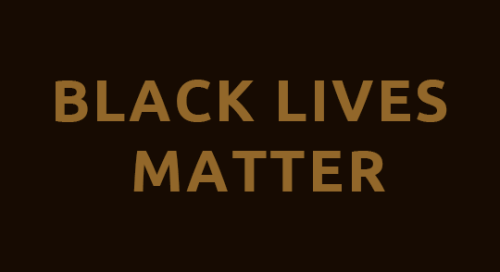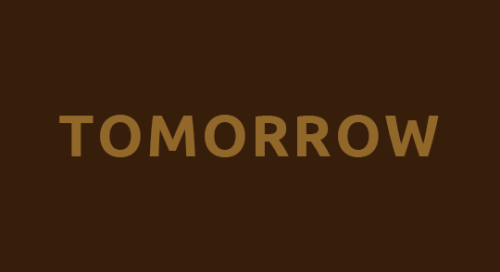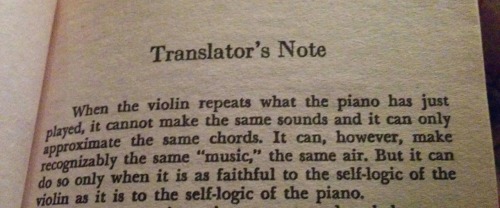~brianna





~brianna
More Posts from Littlelanguagefox and Others
You know you’re doing an English Major when an essay question is to analyse a 50-word long poem with a 2300 word limit.
the cure to self-sabotage is to anchor yourself to the universal truth that you are worth it. you are worth the effort. you are worth the difficulty, you are worth the time, you are worth the consideration. there is never a point in your life, in time itself, that you are not worth it. return to this truth when you feel yourself slipping. do not let it go.




To all my black followers and friends, stay safe.
Also, I would like to add that black lives have always mattered, will always matter.
It’s awful that we even have to say that because it should be a given. However, we need to say it loud and clear for the racists.
We cannot be silent.
I just submitted my application for graduate school and I’m so relieved.
![Vicente Huidobro. Prefacio. Altazor O El Viaje En Paracaídas. [03]](https://64.media.tumblr.com/b29d43e7789dba06b572bf1fcf58a138/tumblr_pupfmiEIJy1waxxw7o1_500.jpg)
Vicente Huidobro. Prefacio. Altazor o El viaje en paracaídas. [03]
my korean apps
hello everyone :) in this post I want to share which apps I use to study korean on the go. I actually had around two dozen apps related to korean on my phone, but no person could use all of them together, so I limited it down to only 12 apps
of course, some of those I haven't used in ages, but I do think they're useful from time to time


LingoDeer
I cannot stop raving about this app, their courses are so well thought through, they teach grammar well and the sample sentences are actually useful!
Memrise
there's nothing new about memrise, I use it because it has all 10 ttmik levels on there, with audio recordings and grammar explanations. @ whoever created that memrise course, I'll love you forever
NAVER dictionary
it's not just a dictionary, it has the papago translator integrated, there are podcasts, each day there's a "word of the day" and "global sentences" where you can learn not only a new sentence, but also view entire sample conversations
KORLINK
it's an app that compiles all ttmik pdf lessons
Beelinguapp
this app has many well known (short) stories and even fairytales which you can read in your native and target language side by side. if you want you can listen to the audio recordings as well, and even slow them down if you need
Grammar Haja
okay this app is amazing, it has nearly all grammar of the korean language, gives in-depth explanations and sample sentences. there's even a "confusing grammar" section where the difference between, well, confusing grammar points is explained
Hanji
you can type in a english or korean verb in any conjugation and it will not only give you the translation (they aren't always on point tho7), but also all the possible conjugations for the verb. it includes all tenses, politeness levels and all possible suffixes
HiNative
HiNative allows you to ask questions about a country or a language to natives. you can phrase any question or use the options provided, such as 'does this sound natural', 'what's the difference between x and x' etc. you can even record your pronunciation or ask natives to send you a audio recording
HelloTalk
this app is mostly about language exchange, so making friends with natives or finding a studdy buddy. you can also post pictures and texts or read others public entries as reading / writing practice. if you want to meet up with someone you can enter your location and see who's near, but beware of the creeps that are on this app and stay safe
세종한국어 apps
these apps are provided by the king sejong institute foundation. there are different apps for different levels, but I downloaded the 회화 초급 and 문법 초급 (conversation and grammar for beginners) as well as the beginner to intermediate vocabulary app. I haven't really taken the time to go through the first two apps to check if there are basics that I still don't know by now, but I'm planning to check that once I have the time. so far I think these apps would be a really good way for beginners to ease into the language and learn the basics. they also provide mini games where you can test your knowledge

that's it for now, I hope you enjoyed this little 'tour' of my korean apps. if you have any questions, feel free to leave a message in my ask :)
have a lovely day everyone 🌸🌺
✨The language learning tip you have not heard (works for all written languages)
The tip: Copy down (entire) passages of text
Why it works: You get WRITING SKILLS since you are writing down every word. You become familiar with the spelling, grammar, different writing styles, script (if you are unfamiliar with it), etc. You get READING SKILLS because obviously you are reading, exposed to the written text in context. You can even incorporate SPEAKING and LISTENING SKILLS by listen to the audio format (you can try google translate audio if you find nothing else) and/or read it aloud to yourself. Since you are limited by the speed of your writing, you will pay more attention to pronunciation. *Also, everyone knows you retain more information when you write by hand.*
How to:
1. Select a text. Make sure it is appropriate to your level and desired new vocabulary set. If I want to know more political vocabulary, I will read a news article. But for colloquial language/slang, I will read a YA novel.
(Btw you can find tons of texts for novels online if you search: “title name” + pdf)
2. Get a paper and writing utensil (you can dedicate a notebook to this if you want).
3. Don’t stop until the text is done or your hand hurts
4. Limit looking up vocabulary. If the text is more challenging for you, allow yourself to look up about one word per paragraph. If it is at your level, then wait to the end of the session to open the dictionary. Chances are, you’ll figure out the word’s meaning a few lines later.
4. Go back to the text later to review and/or make vocabulary lists from what you learned (flashcards like anki or memrise would be great especially if you put the sentence on one side with the word indicated and a representative picture on the other side
Ex. Side one: I planted a *rose* today
Side two: picture of a rose in a pot)
**btw I don’t know if this is an “undiscovered” method. I used this to learn spelling and writing structures in my native language when I was little. I would even put the writing right in my picture books**

from john ciardi’s translation of “the inferno” by dante alighieri
-
 hayn-babo liked this · 3 years ago
hayn-babo liked this · 3 years ago -
 ohcoolnice liked this · 4 years ago
ohcoolnice liked this · 4 years ago -
 bambi-thedeer liked this · 4 years ago
bambi-thedeer liked this · 4 years ago -
 b-geminorum liked this · 4 years ago
b-geminorum liked this · 4 years ago -
 zanedussy liked this · 5 years ago
zanedussy liked this · 5 years ago -
 cityscapeskeletons liked this · 5 years ago
cityscapeskeletons liked this · 5 years ago -
 pandoralangblr liked this · 6 years ago
pandoralangblr liked this · 6 years ago -
 loveusandoor reblogged this · 6 years ago
loveusandoor reblogged this · 6 years ago -
 loveusandoor liked this · 6 years ago
loveusandoor liked this · 6 years ago -
 no1jaehyunsblog-blog reblogged this · 6 years ago
no1jaehyunsblog-blog reblogged this · 6 years ago -
 nihilism-at-best liked this · 6 years ago
nihilism-at-best liked this · 6 years ago -
 personaltheft liked this · 6 years ago
personaltheft liked this · 6 years ago -
 pisces-gal23 liked this · 6 years ago
pisces-gal23 liked this · 6 years ago -
 03h2r3j00 reblogged this · 6 years ago
03h2r3j00 reblogged this · 6 years ago -
 honeysweetrenjun liked this · 6 years ago
honeysweetrenjun liked this · 6 years ago -
 lovemesomechicken liked this · 6 years ago
lovemesomechicken liked this · 6 years ago -
 mythlegendbadbitch liked this · 6 years ago
mythlegendbadbitch liked this · 6 years ago -
 army-with-seoul reblogged this · 6 years ago
army-with-seoul reblogged this · 6 years ago -
 army-with-seoul liked this · 6 years ago
army-with-seoul liked this · 6 years ago -
 latinfiercegirl liked this · 6 years ago
latinfiercegirl liked this · 6 years ago -
 my-deathless-eternity liked this · 6 years ago
my-deathless-eternity liked this · 6 years ago -
 alcohollicopterxx liked this · 6 years ago
alcohollicopterxx liked this · 6 years ago -
 musiclover9502 reblogged this · 6 years ago
musiclover9502 reblogged this · 6 years ago -
 musiclover9502 liked this · 6 years ago
musiclover9502 liked this · 6 years ago -
 carpediemaw-blog liked this · 6 years ago
carpediemaw-blog liked this · 6 years ago -
 fantastical-wonders reblogged this · 6 years ago
fantastical-wonders reblogged this · 6 years ago -
 fantastical-wonders liked this · 6 years ago
fantastical-wonders liked this · 6 years ago -
 wirsindcolorful liked this · 6 years ago
wirsindcolorful liked this · 6 years ago -
 corvidcantina liked this · 6 years ago
corvidcantina liked this · 6 years ago -
 your-casual-langblr reblogged this · 6 years ago
your-casual-langblr reblogged this · 6 years ago -
 spiderbytelemon liked this · 6 years ago
spiderbytelemon liked this · 6 years ago -
 ihyuni liked this · 6 years ago
ihyuni liked this · 6 years ago



